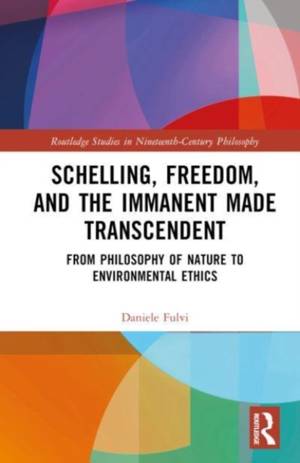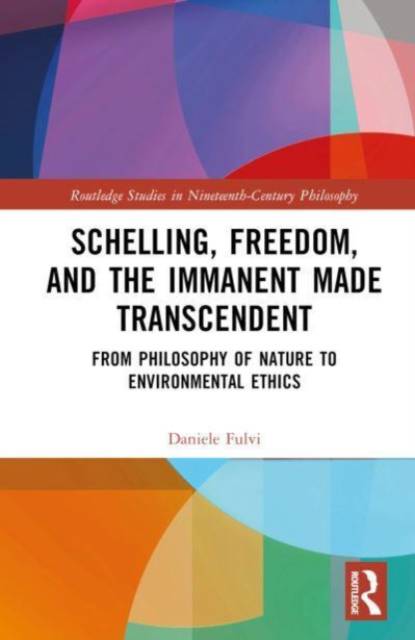
- Retrait gratuit dans votre magasin Club
- 7.000.000 titres dans notre catalogue
- Payer en toute sécurité
- Toujours un magasin près de chez vous
- Retrait gratuit dans votre magasin Club
- 7.000.0000 titres dans notre catalogue
- Payer en toute sécurité
- Toujours un magasin près de chez vous
Schelling, Freedom, and the Immanent Made Transcendent
From Philosophy of Nature to Environmental Ethics
Daniele FulviDescription
This book offers a cutting-edge interpretation of the philosophy of F.W.J. Schelling by critically reconsidering the interpretations of some of his "successors." It argues that Schelling's philosophy should be read as an ontology of immanence, highlighting its relevance for ongoing debates on ethics and freedom.
The book builds on a key notion from Schelling's Philosophy of Revelation where he outlines the process through which transcendence must return to immanence in order to be grasped and understood. The author identifies Jaspers, Heidegger, and Deleuze as the main interpreters of Schelling's philosophical activity, highlighting their relevance for subsequent Schelling scholarship. Heidegger and Jaspers refer to Schelling's philosophy in negative terms, namely as an incomplete and unviable philosophical system, whereas Deleuze holds the immanent core of Schelling's ontological discourse in high regard. The author's analysis demonstrates that reading Schelling's philosophy as an ontology of immanence not only avoids Heidegger's and Jaspers's criticisms but is also more fitting to Schelling's original meaning. Accordingly, his reading allows us to fully grasp Schelling's thought in all its strength and consistency: as a philosophy that avoids metaphysical abstractions and maintains the concreteness of concepts like God, nature, freedom by binding them to a solid and material account of Being. Finally, the author uses Schelling to propose an innovative reading of freedom as a matter of resistance, and of philosophy as an activity whose main purpose is that of seeking the actual extent and place of (human) life and freedom within nature. The author originally emphasises the relevance of these conclusions on contemporary debates in Postcolonial Critical Theory and Environmental Ethics.
Schelling, Freedom, and the Immanent Made Transcendent. From Philosophy of Nature to Environmental Ethics will appeal to scholars and advanced students working in 19th-century Continental philosophy, German idealism, and Postcolonial Critical Theory and Environmental Ethics.
Spécifications
Parties prenantes
- Auteur(s) :
- Editeur:
Contenu
- Nombre de pages :
- 282
- Langue:
- Anglais
- Collection :
Caractéristiques
- EAN:
- 9781032351544
- Date de parution :
- 28-09-23
- Format:
- Livre relié
- Format numérique:
- Genaaid
- Dimensions :
- 152 mm x 229 mm
- Poids :
- 566 g

Les avis
Nous publions uniquement les avis qui respectent les conditions requises. Consultez nos conditions pour les avis.






